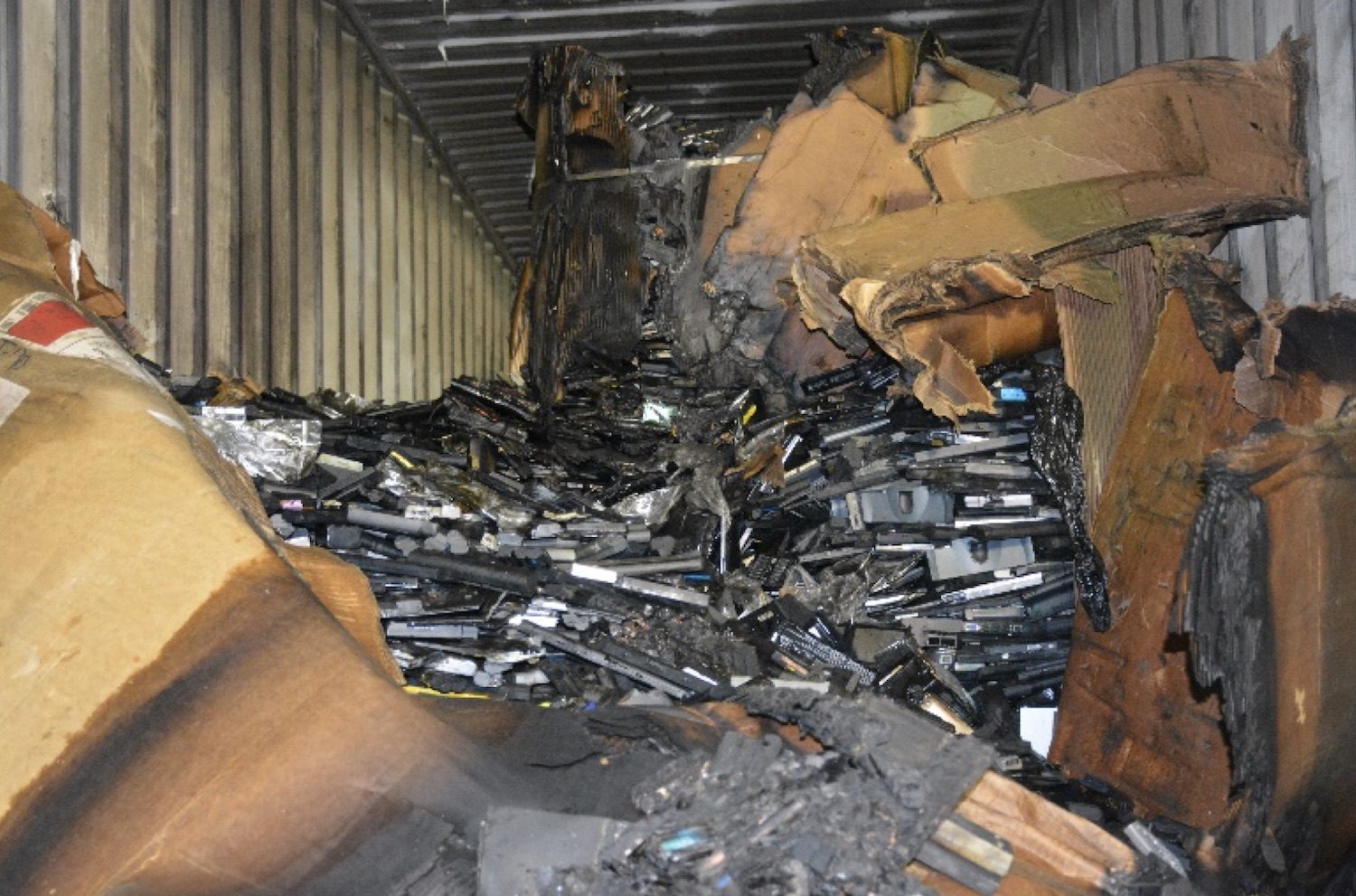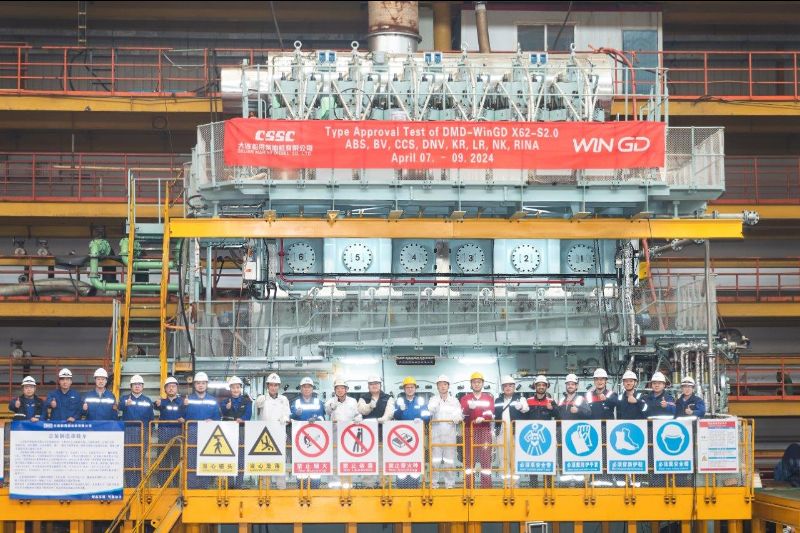
Water, water, every where,
And all the boards did shrink;
Water, water, every where,
Nor any drop to drink.
In a line from Samuel Taylor Coleridge’s famous poem ‘The Rime of the Ancient Mariner’, he touches upon the ancient conundrum that has plagued mariners and mankind for ages: how to turn seawater, making up approximately 97% of the worlds water supply, into potable water suitable for drinking or irrigation. Today, however, there are several processes and products that turn salty seawater into fresh drinking water and no longer do vessels have to bring along a large supply of fresh water or rely unpredictable rainwater to stay alive for long stretches at sea.
Desalination, or the de-salting of saline water, is not a new technology. In fact, the first records of anyone trying to desalt water appear, arguably, in the the bible and early interest in desalination resulted from the fear of dying of thirst while out at Sea. The United States’ interest in desalination was first recorded in a technical report presented by Thomas Jefferson, the Secretary of State, to describe the results of a simple distillation process to be present on board ships so that there would be a source of fresh water in case of an emergency. With the introduction of steamships, the first desalination units were developed and, by the second World War, were commonly in use aboard vessels.
Today, fresh water generators (FWG’s), are common place among both commercial vessels, and yachts alike. Detailed below, are just a few ways in which today’s vessels desalinate seawater into, fresh, potable water used for everything from drinking, to cooking and cleaning. Continue after the jump for more on how today’s FWG’s work.
Below explanations Bright Hub:
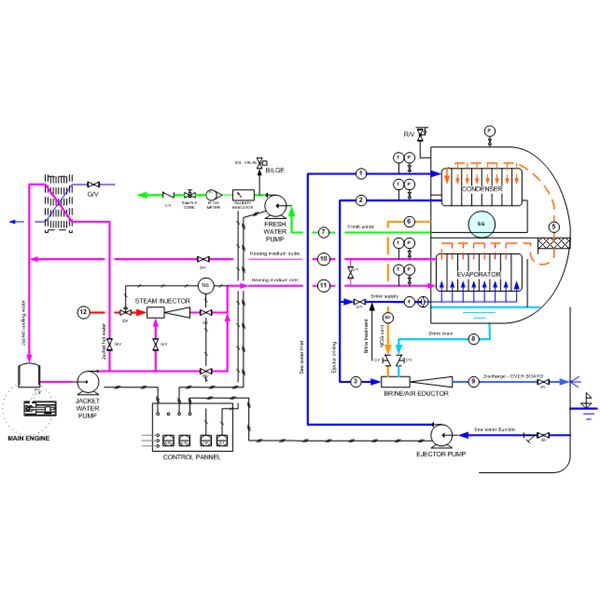
Single stage fresh water generator
A fresh water generator consists of mainly two parts. A condenser and an evaporator. The boiling process is done either by a heating coil or by using the high temperature main engine jacket water. In some FWGs, heating is also done by superheated steam. Generally water is boiled at 100 degree Celsius, but in freshwater generator it is done at around 60-70 degree Celsius. For this purpose, eductors or air ejectors are use. Eductors reduces the chamber’s pressure to such a point that water starts boiling at a temperature of 60-70 degrees Celsius. A flow meter is used to regulate the flow of sea water into the generator. The freshwater generated in the condenser is later collected by a distillate pump. A salinometer is used to check the salinity in the fresh water generated.
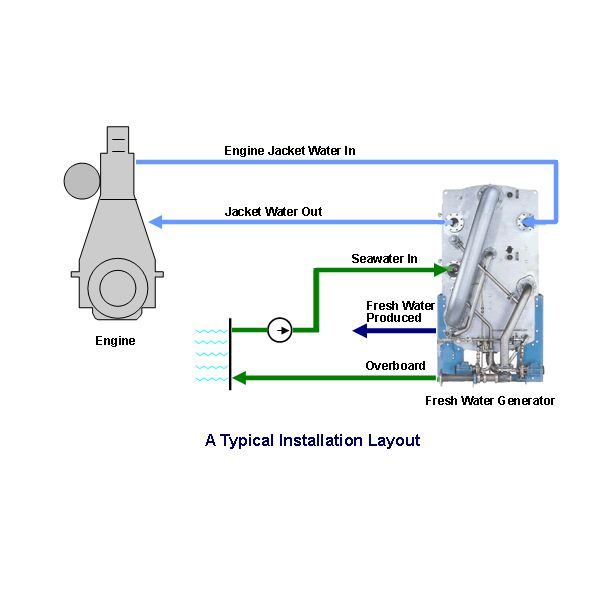
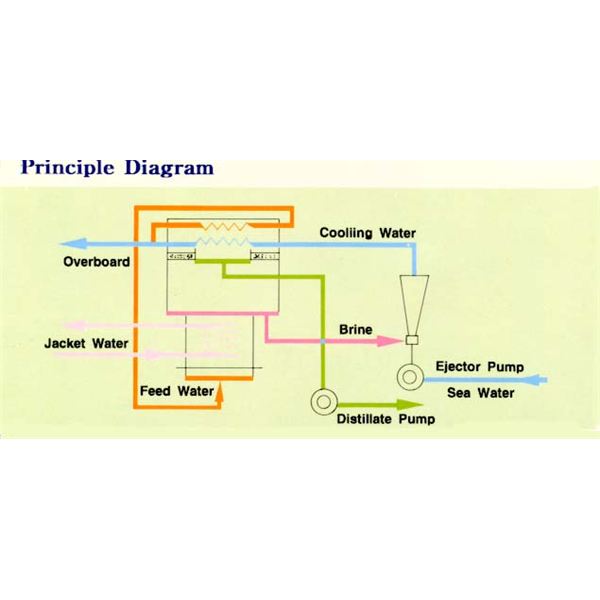
Working of the FWG
The hot jacket water from the diesel engine is passed through the evaporator’s heated nest. The sea water enters the evaporator through the flow meter and due to the low pressure of the chamber; it boils and gets converted to steam. Generally the feed of the seawater is kept half the stated quantity to facilitate adequate boiling of sea water. The steam then passes through a steam separator, in which the water particles in the steam are separated and collected.
The steam then enters the condenser, where it cools down to form fresh water. It is then removed from the condenser with the help of a distillate pump. The remainder sea water particles or the brine which gets collected at the bottom is drawn out with the help of an ejector pump.
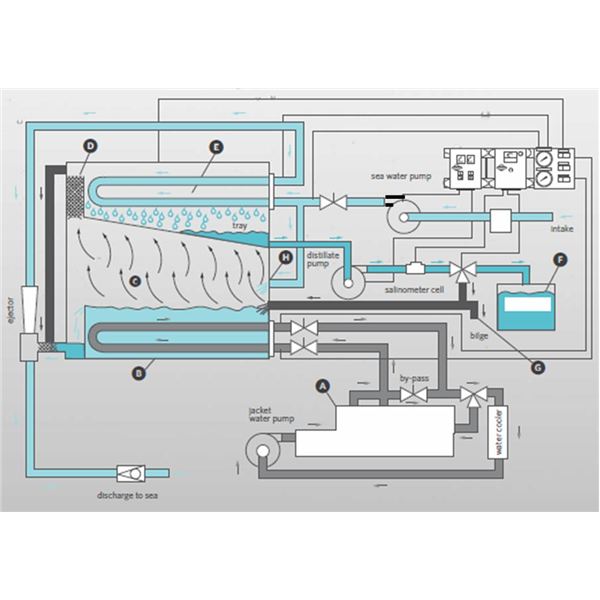
Flash process- Increasing the efficiency
A liquid which is already having sensible amount of heat when introduced in a pressurized chamber, immediately gets converted to steam, i.e. in a flash, without the boiling process. Thus the phenomena can be used to acquire higher level of efficiency by controlling the exact pressure and temperature of the water, which will lead to higher energy efficiency.
Source: Bright Hub
More Sources:

 Join The Club
Join The Club









